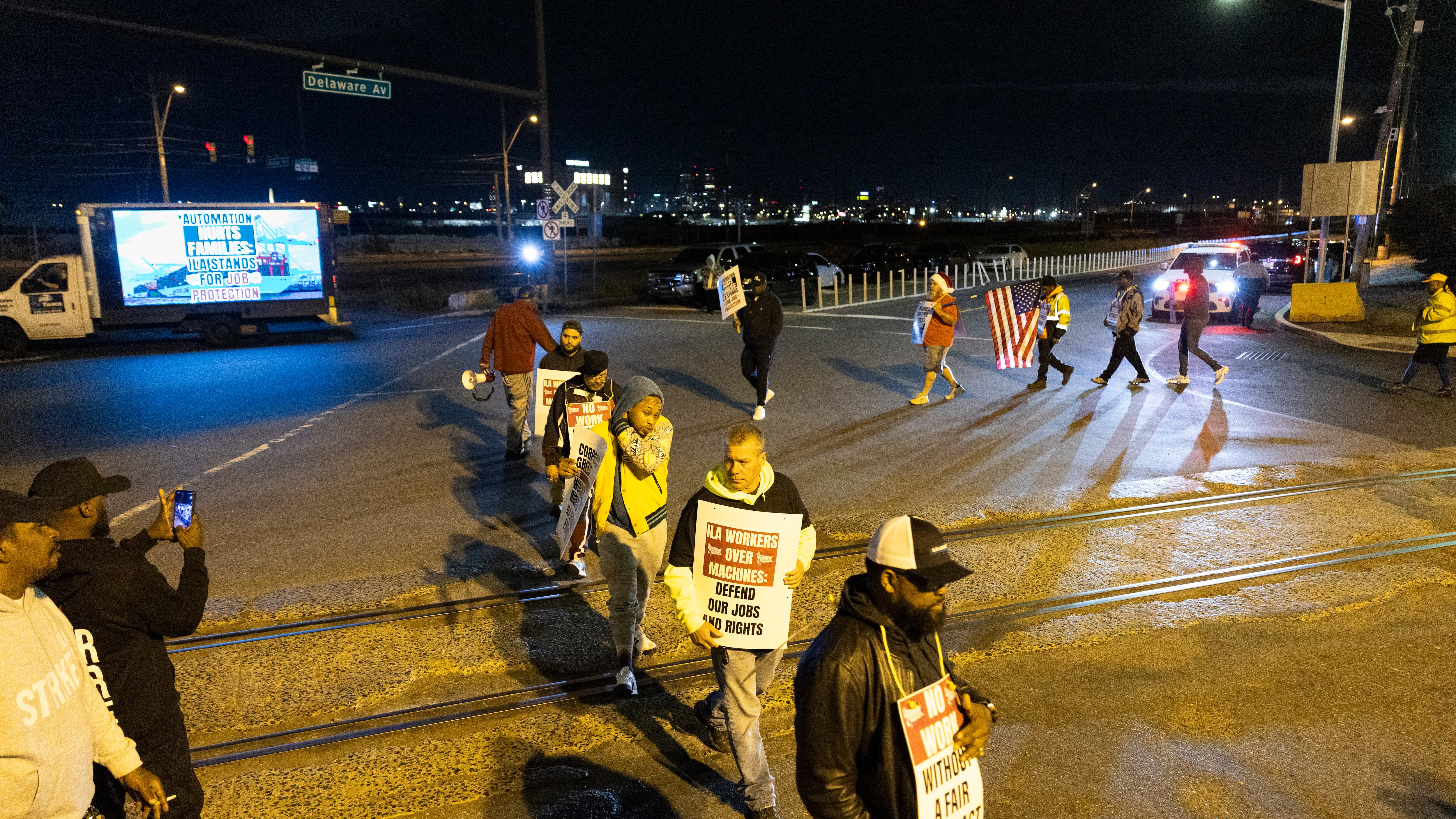PHILADELPHIA (AP) — Dockworkers from the ports from Maine to Texas began forming picket lines early Tuesday in a strike over wages and automation that could reignite inflation and cause shortages of goods if it lasts more than a few weeks.
The contract between the ports and the approximately 45,000 members of the International Longshoremen's Association (ILA) expired at midnight, and although progress was reported in the negotiations on Monday, the workers went on strike. The strike, which affects 36 ports, is the first called by the union since 1977.
PUBLICIDAD
What were the first actions of the strike?
The workers began picketing at the port of Philadelphia shortly after midnight, walking in circles at a railway crossing outside the port and chanting "No fair contract, no work."
The union had banners with messages that read "Automation harms families: ILA defends job protection."
The president of the union in the city, Boise Butler, said that the workers want a joint contract and do not want the automation of their positions to be allowed.
Shipping companies made billions of dollars during the pandemic by charging high prices, he said, adding that "Now we want them to give it back to us. They are going to give it back to us."
He said that the union will strike for as long as necessary to achieve a fair agreement and that it has influence over the companies.
"This is not something that starts and finishes (...) we are not weak," he pointed out, referring to the weight of the union in the country's economy.
At least 50 workers gathered outside the port of Houston with signs that read "No fair contract, no work."
The U.S. Maritime Alliance, representing the ports, said on Monday night that both parties had moved from their previous salary offers. However, this did not lead to an agreement.
The union's initial offer was a 77% increase in wages over the six-year term of the contract, and its president, Harold Daggett, pointed out that it was necessary to compensate for inflation and years of small raises. ILA members have a base salary of around $81,000 annually, but some can earn up to $200,000 due to a large amount of overtime hours.
On Monday afternoon, the Alliance announced that it had increased its offer to a 50% increase over six years and committed to maintaining the limits on automation from the previous contract. The union wants a total ban on automation. The differences between both parties were not clear.
In a statement released early on Tuesday, the union said it rejected the latest proposal because "it fell far short of what ILA rank-and-file members demand in terms of wages and protections against automation." The two parties had not engaged in formal negotiations since June.
"We are willing to fight for as long as necessary, to maintain the strike for as long as it takes, to secure the wages and protections against automation that our members deserve," Daggett said in the statement. "They must now meet our demands for this strike to end."
The ILA said that their proposal triples employers' contributions to retirement plans and strengthens healthcare assistance options.
Supply chain experts claim that consumers will not see an immediate impact from the strike as most retailers stocked up by advancing shipments of gift items for the holidays.
But if the strike were to last for more than a few weeks, it would significantly disrupt the country’s supply chain, which could lead to price increases and delays in the arrival of products to households and businesses.
